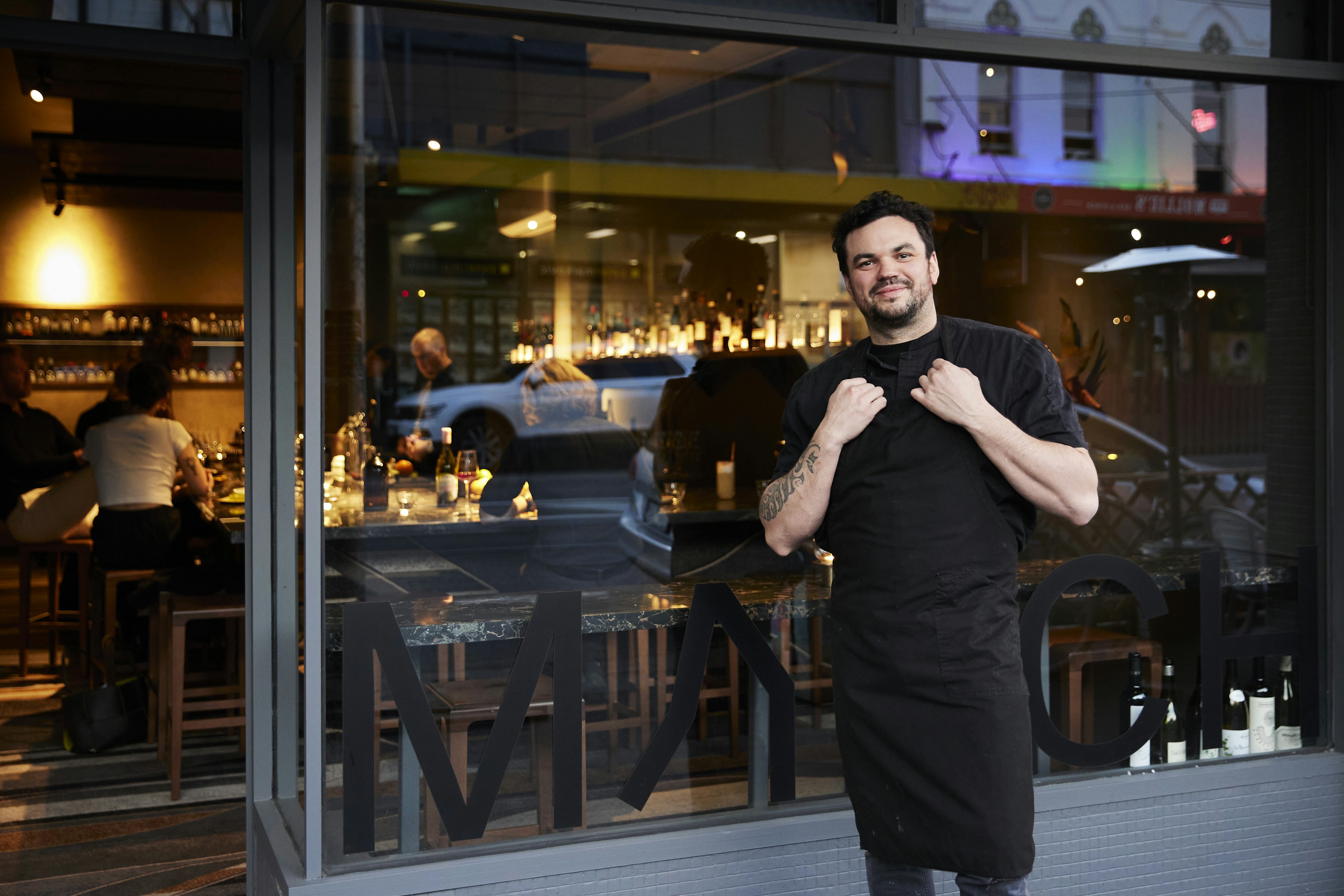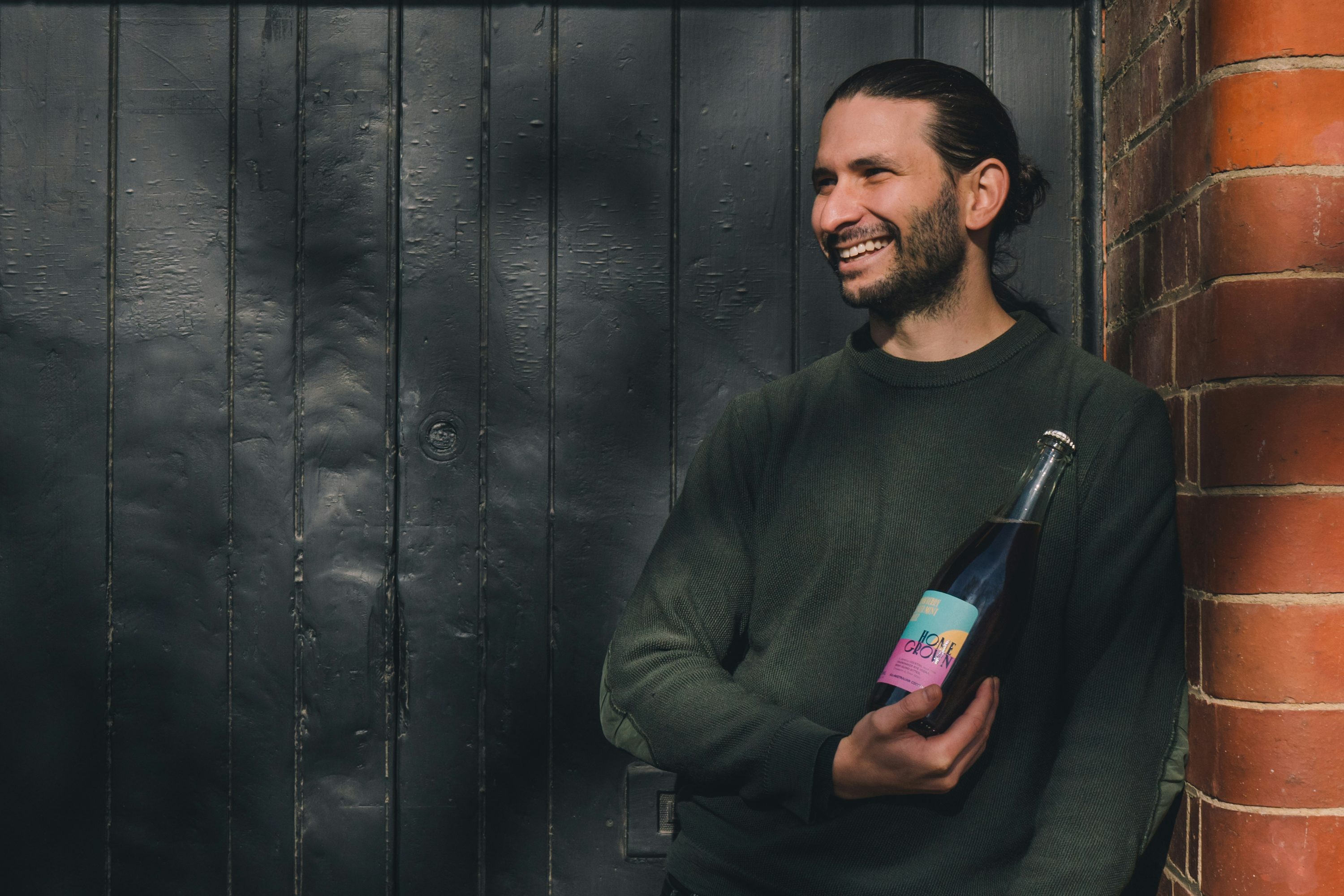The Stagiare
Prompted by the announcement of globally lauded restaurant, Noma in Copenhagen, closing and that owner/chef Rene Redzepi stated he had to close when he started to pay all staff appropriately, we decided to explore the concept of the ‘stage’ in the current culinary climate.
Hilary McNevin

Peter Gunn, Ides & March.
Is the current culinary climate set to continue supporting work with no pay but great experience?
Far more common across the US and Europe, staging is often misunderstood, so we had a chat with some hospitality professionals to get a better insight of how it is perceived here in Australia.
Staging, if you’ve not come across it before, is an unpaid internship when a cook or chef works briefly, for free (or to gain a position), in another chef’s kitchen to learn and be exposed to new techniques and cuisines. The term originates from the French word ‘stagiaire’ meaning trainee, apprentice, or intern.
This form of work experience can serve two purposes: it allows individuals the chance to gain experience in a place that they admire while working in another place or studying. This gateway experience can also often help individuals decide whether it would be something they want to pursue long term. The establishment is able to benefit from some ‘free labour’, but it’s this idea of ‘free labour’ that has given the concept a chequered reputation.
Michael Ryan, chef and co-owner of The Provenance in Beechworth, in northeast Victoria doesn’t see himself and his business on the ‘stage circuit’,” but says, “There is some merit to it [the stage] as part of an apprenticeship scheme, although I don’t want to negate what they’re doing but the model is based on access to free labour.”
He adds that to rely on that free labour is dangerous,
“You can gain a lot of experience – as a chef – doing a ‘stage’ although as the business gets free labour the model is set up for abuse.”
Michael says that potentially chefs should be taught more about business and finances during their apprenticeships.
“Chefs are usually trained to work in brigades as opposed to in a business, to expose them to a stronger business perspective would be helpful.”

Michael Bascetta, Worksmith.
Co-founder of Worksmith and former manager at Attica, Michael Bascetta agrees with Michael Ryan in terms of a broken ‘free labour’ model and also sees the benefits to ‘staging’.
“I think it’s hard to be objective when I did some staging. Years ago when I first got back from London, I really wanted to work at Attica, but they had no positions. So, I offered to work for free two nights a week and had a paid job on the side and then slowly got the opportunity to work casually and by the time I finished, I was manager.”
He acknowledges that he would have never got to that point without the ‘stage.’
“Where the ‘stage’ falls down is where it relies on free labour as part of its business model,” he says, “When you have people out the back and you rely on the fact that they’re not being paid, well, that’s not sustainable.”
The best way to embrace the ‘stage’ is to be strategic, “You can be selective,” says Michael Ryan, “you can target high-end places you don’t usually have access to.”
Back to Noma, is it correct that one of the most successful restaurants in the world had to close just three-months in to paying staff properly?
“I think that line in the news of Noma closing was poor messaging,” says Peter Gunn, chef and co-owner of Ides in Collingwood and the neighbouring bar, March.
“It’s a restaurant at the top of its game and would be paying people properly, it doesn’t make sense to say that. Noma has so many long-term staff, in one of the most expensive countries in the world,” he says.
In terms of the concept of the ‘stage’, Peter Gunn’s frustration lies in the way outsiders view stagiaires.
“No one can force anyone to do anything,” he says, “chefs aren’t forcing anyone to come and cook for free, there’s a mutual understanding between the parties.”
“My experience is that people plan to have the money and time to do something for nothing because they want the experience; it’s more of a work experience model and I do believe there is success in these elite fine dining restaurants who support ‘stages,’" says Peter.
Michael Bascetta adds, “It also depends on how you look after the staff doing the ‘stages’ and how you handle it. They shouldn’t be relied upon as employees and if there’s a mutual respect and understanding from both sides, it can work really well.”
Bascetta suggests that to have ‘stages’ you need to maintain your restaurant at a level that makes people want to stage there.
“It needs to be a two-to-three hat restaurant that has a chef with a great profile but if you create a culture and model where you rely on free labour, it’s a problem.”
Of Noma, he also thinks it’s not just paying people that has influenced their decision to change direction. “Noma isn’t just a site; it’s Rene [Redzepi – chef/owner], the books, the events, the popups – what surrounds them is much bigger than just the restaurant.”
He agrees with the poor messaging in the Noma’s article, “To say it’s not sustainable – and if that’s correct – then it shouldn’t be sustainable for anyone. I think hospo at that level is no longer accessible to 99% of the population so Noma changing direction isn’t going to change the world.”

Michael Ryan, The Provenance.
Michael Ryan sprinkles in the final dose of reality, “Every five years or so. we’re told fine dining is dead, but it will exist and always morph and change. It’s not what it was 20 years ago, businesses and diners change and adapt and the intricacies of what will evolve will be what they are. There’ll always be some places who have ‘stage’ available, they just need to be treated well.”